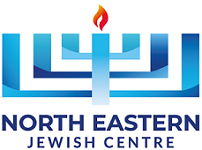Childbirth is one of the most miraculous experiences in the Jewish lifecycle. A child is born into this world, G-d invests within it a Jewish soul and charges it with a mission in life: To make this world a better place.
On the first Shabbat after a Jewish child is born, the infants father is called up to the Torah at the synagogue for an aliyah (call up) and requests a blessings for the health of the mother and child. If the child is a girl, she is named at this time. Boys will be named on the eighth day after birth, as part of the rite of circumcision.
Jewish children are traditionally given two names: A Hebrew name for use in religious rituals, such as the calling up to the Torah and the ketubah (marriage contract), and a secular name for purposes of civil birth records and daily use. The Hebrew name takes the form of [child’s name] ben [father’s name] for boys, or [child’s name] bat [father’s name] for girls.
The name itself has much spiritual significance and is considered to contribute to the personality of the child. It is for this reason that Ashkenazi Jews traditionally name their children after a recently deceased relative, wishing for their children to emulate the positive characteristics of the person after whom they are named. In Sephardic communities children may also be named after living relatives.
Childbirth is one of the most miraculous experiences in the Jewish lifecycle. A child is born into this world, G-d invests within it a Jewish soul and charges it with a mission in life: To make this world a better place.
On the first Shabbat after a Jewish child is born, the infants father is called up to the Torah at the synagogue for an aliyah (call up) and requests a blessings for the health of the mother and child. If the child is a girl, she is named at this time. Boys will be named on the eighth day after birth, as part of the rite of circumcision.
Jewish children are traditionally given two names: A Hebrew name for use in religious rituals, such as the calling up to the Torah and the ketubah (marriage contract), and a secular name for purposes of civil birth records and daily use. The Hebrew name takes the form of [child’s name] ben [father’s name] for boys, or [child’s name] bat [father’s name] for girls.
The name itself has much spiritual significance and is considered to contribute to the personality of the child. It is for this reason that Ashkenazi Jews traditionally name their children after a recently deceased relative, wishing for their children to emulate the positive characteristics of the person after whom they are named. In Sephardic communities children may also be named after living relatives.
